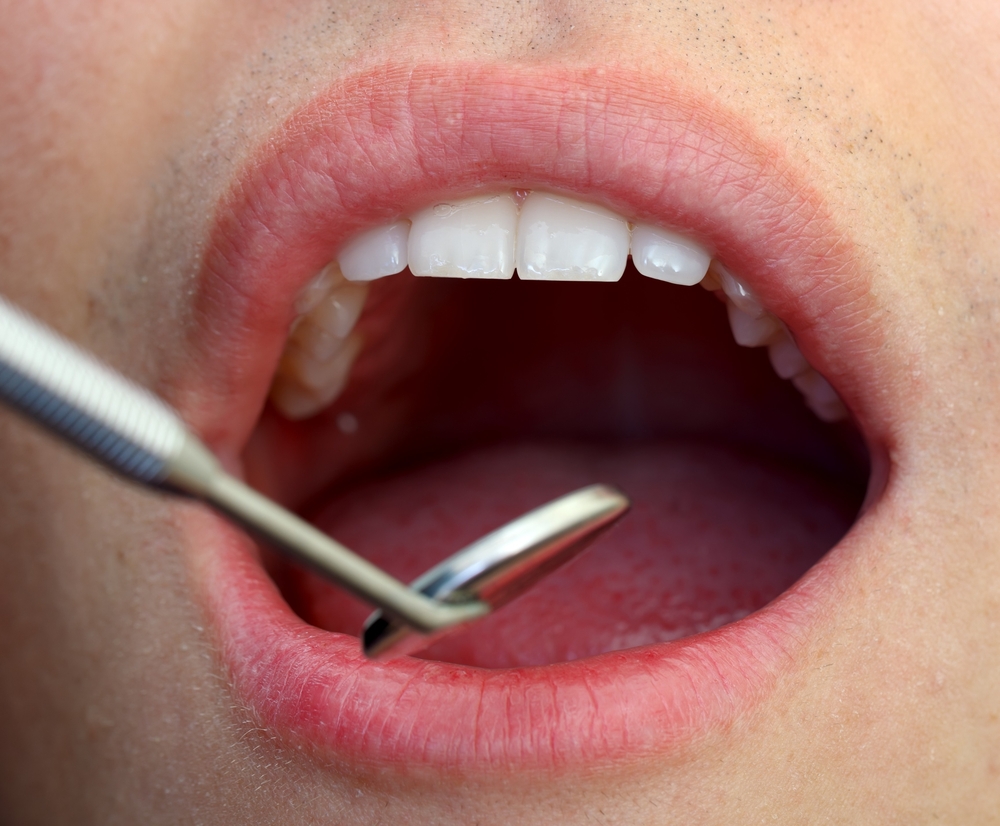What’s The Best Way to Floss
We all know we should floss, but it can be tough. Part of this is because flossing can feel like an extra task in an already busy day, but it...

Tooth cupping is a common dental condition in which small indentations or cups begin to develop on the chewing surfaces of the teeth. Deep cups and grooves appear for various reasons and are considered a rare form of enamel and dentin erosion. Once the holes reach the dentin, the tooth enamel starts to collapse, allowing the cups to become deeper and broader.
Some holes are visible and can be seen by taking a look in the mirror. However, molar cupping is most commonly diagnosed during a routine dental exam. Read on to learn about what causes molar cupping and how it’s treated.
Acid Erosion
Poor oral health, combined with an acidic environment in the mouth can exacerbate tooth enamel erosion. Acid erosion can be triggered by drinking fruit juices, wine, and soda. Almost every type of wine contains sugar, in addition to strong acids that can soften the enamel on the teeth. Lemon, orange, apple, and cranberry juices are also highly acidic and sweetened by sugar.
Dry Mouth
Certain prescription medications are known for lowering the mouth’s pH level, resulting in a lack of natural saliva. Low saliva levels mean the acids in the mouth that cause dental erosion don’t get washed away. A dry mouth leads to excessive acids in the mouth that cause cupping.
Acid Reflux
Suffering from acid reflux is a common reason for dental cupping. These acids cause maximum damage to the teeth’ enamel because acid reflux brings stomach acids to the mouth. Stomach abnormalities, pregnancy, smoking, or eating disorders all cause acid reflux.
These small steps can make a huge difference when preventing tooth cupping and other associated long-term damage.
Maintain Proper Dental Hygiene
With proper dental care, you can prevent enamel erosion in your teeth. Daily dental hygiene is a crucial factor in maintaining excellent dental health. Brushing your teeth twice a day for two minutes each time, flossing every day, and brushing your tongue daily is a great place to start.
Limit Sugar
Additionally, limit your consumption of sugary drinks and foods as these encourage the acidic environment in the mouth that leads to erosion.
Prevent Teeth Grinding
If you know you grind your teeth at night, invest in a custom-fitted night guard to protect your teeth when they are most vulnerable.
Stay Hydrated
If you take certain prescription medications that list dry mouth as a common side effect, be sure to stay hydrated and rinse your mouth out often.
Don’t Brush Immediately After Eating
Tooth enamel is at its most vulnerable state after eating as the acid from foods may soften the enamel. It’s recommended that you avoid brushing immediately after a meal and to wait for at least half an hour after eating.
Dental bonding is the most common form of treatment for tooth cupping, so long as the erosion isn’t significant and has not reached dentin. Your teeth’ damaged surfaces can be bonded with a plastic-like layer to protect your teeth from further damage. The material used will match the color of the surrounding teeth and can also even out discoloration.
Severely eroded teeth will need more in-depth restorative dentistry treatments. Depending on the severity of the cupping, a dental crown, inlay, onlay, or a composite filling may be recommended for restoring the tooth’s structure.
It is critical to pinpoint the underlying habit to put an end to further damage. Your dentist may recommend making some changes to your eating or drinking habits. Additionally, if you are suffering from bruxism, your dentist may recommend wearing a nightguard.
Neglecting cups and grooves in your teeth can increase your risk of tooth sensitivity. To avoid experiencing tooth pain, jaw discomfort, and tooth loss, contact Hoffman Dental Care to schedule an exam. Timely treatment can help to save damaged teeth and avoid dental emergencies. If you’re experiencing any symptoms of molar cupping, contact us today.